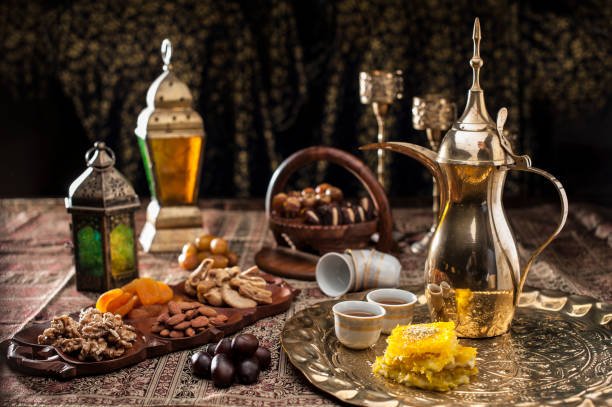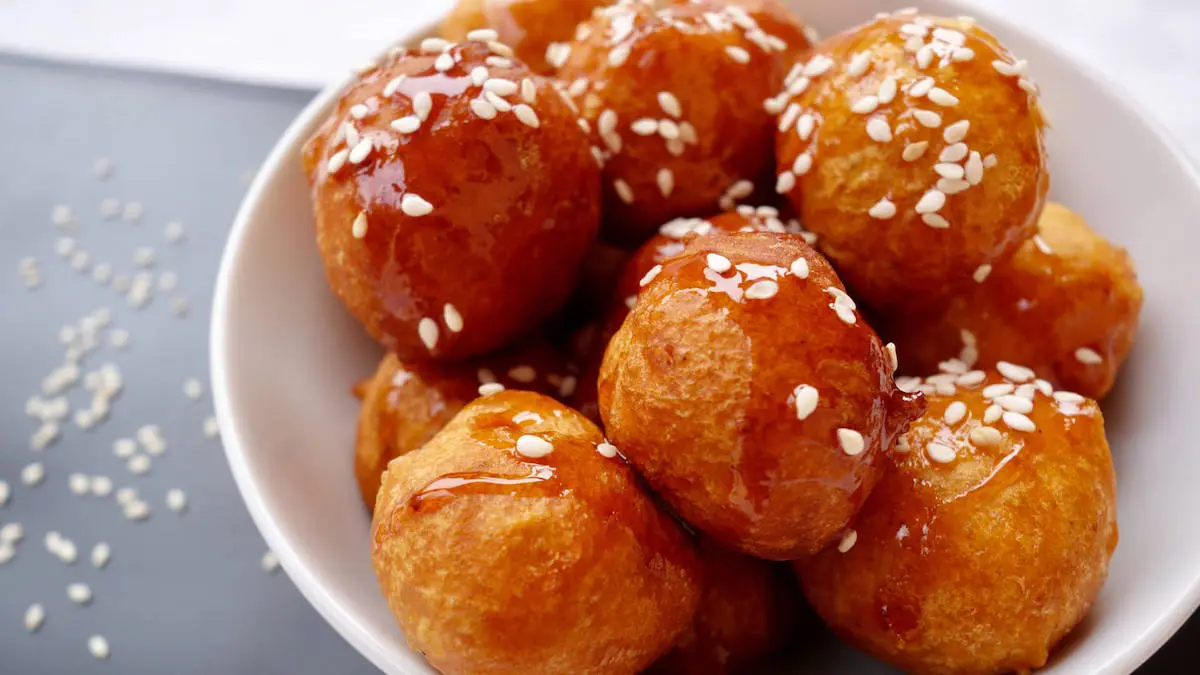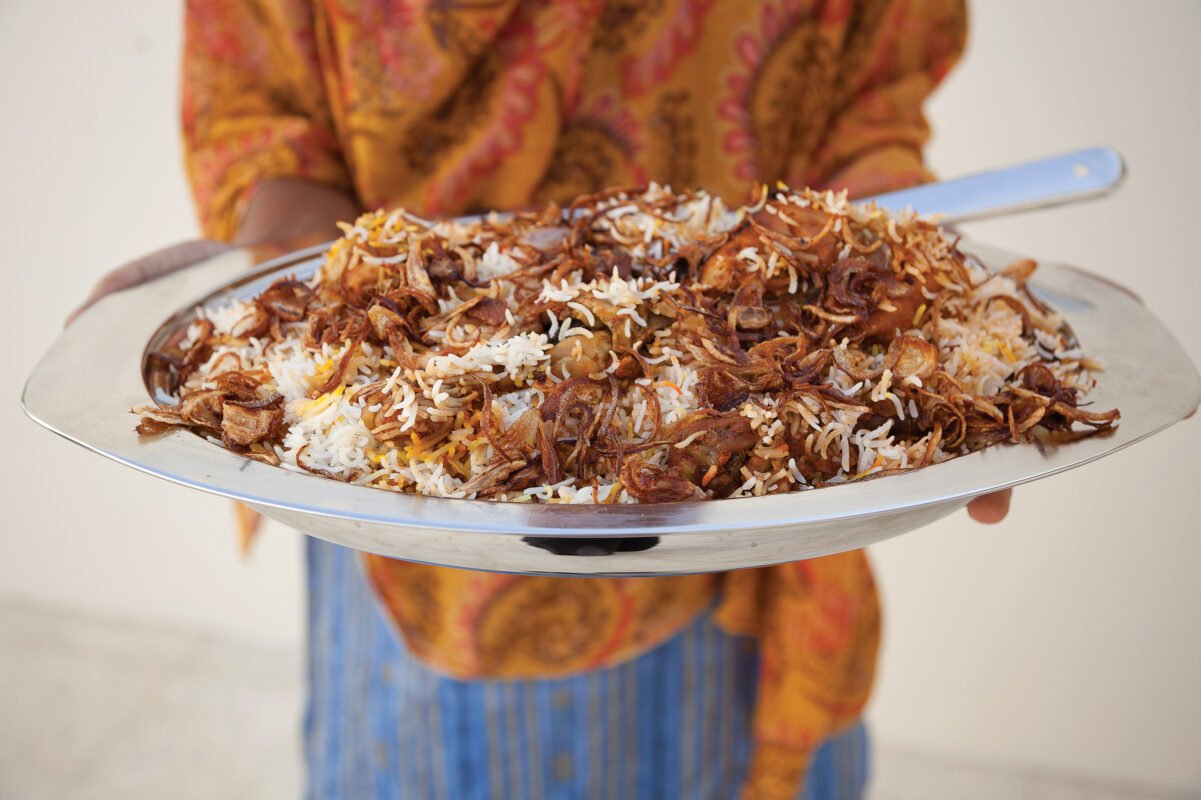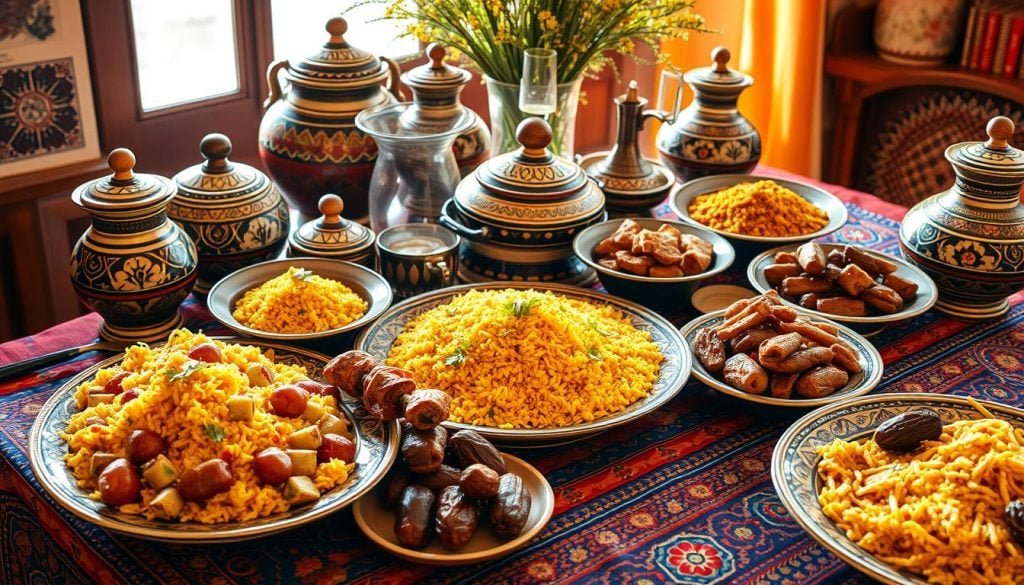Muscat Oman food changed everything. The tender meat came infused with cardamom and saffron, served over aromatic rice. That single dish told stories of centuries-old spice routes and cultural exchanges, completely transforming my point of view on Middle Eastern cuisine.
Omani food presents an array of influences. Indian traders, Persian merchants, and Bedouin traditions have shaped a unique culinary identity that stands distinctly Omani. The city’s vibrant food scene has captured my attention during extensive exploration, and now I’m thrilled to share a detailed guide about the best local dishes, markets, and dining spots in this captivating city.
Let me take you through traditional breakfast specialties and hidden street food gems. You’ll discover insider tips about finding the most authentic flavors. The journey includes ways to explore local markets, join cooking classes, and experience traditional coffee ceremonies. These elements combine to make dining in Muscat truly exceptional.
Understanding Omani Culinary Heritage
My exploration of Omani culinary heritage reveals how centuries of maritime trade altered the map of the country’s unique food identity. The bustling markets of Muscat tell stories of ancient trade routes that shaped today’s Omani cuisine.
Historical influences on Omani cuisine
Oman’s food story began in the 16th century when Portuguese traders arrived with Mediterranean influences to local cooking. The establishment of sea-trading networks after 1624 changed everything. The connections with Iran, India, Pakistan, and most notably Zanzibar, have left lasting impressions on Omani cooking traditions.
Portuguese sailors brought new cooking techniques, and brief Turkish and Persian rule added their distinctive touches. The sort of thing I love is Zanzibar’s strong influence that lives on today, especially when you have coconut and specific spice combinations that define modern Muscat Oman food.

Traditional Arabian coffee, nuts and sweets served to guest at majlis
Key spices and ingredients in traditional dishes
Masterful use of spices forms the soul of Omani cuisine. The traditional bezar (Omani spice mixture) has:
- Cardamom and cloves from ancient Asian trade routes
- Cinnamon and black pepper for depth
- Cumin and coriander for earthiness
- Saffron for its distinctive color and aroma
Frankincense and rose water make Omani cooking unique. People rarely add frankincense to dishes but burn it to perfume dining spaces. Rose water from the Saiq Plateau’s damask roses creates the signature taste of Omani desserts and beverages.
Regional variations within Muscat
Geography plays a vital role in Muscat’s regional food variations. Coastal areas celebrate seafood, with dishes like mashuai (grilled kingfish) showcasing the Arabian Sea’s bounty. Coastal dishes reflect clear Swahili Coast influences through coconut milk use.
Inland regions have developed their own cooking identity. Jebel Akhdar’s cooler heights yield unique ingredients like peaches, pears, and pomegranates that create different flavor profiles in mountain dishes. Rice remains a staple throughout Muscat, but its preparation and accompanying ingredients vary by a lot between coastal and inland regions.
Essential Omani Dishes to Try in Muscat
My culinary adventures in Muscat taught me the best way to experience authentic Oman food starts with sunrise. Let me share my favorite dishes you need to try.
Traditional breakfast specialties
Every morning in Muscat begins with an amazing spread of traditional breakfast dishes. Balaleet stands out as the highlight of any Omani breakfast – sweet and savory vermicelli noodles topped with an omelet. The sprinkle of coconut and nuts creates an amazing contrast of textures.
A complete breakfast includes these must-have items:
- Khubz Ragag – paper-thin bread made with just water, flour, and salt
- Khabeesa – a warming semolina dish flavored with saffron and rose water
- Shakshuka – eggs poached in a fragrant tomato sauce with local spices
Main course delicacies
Machboos takes center stage among main courses. This aromatic rice dish reminds me of biryani but carries its own distinct Omani character. The meat (usually chicken or lamb) gets packed tightly into a pot with rice layered above it. This allows all the flavors to blend together.
Harees became my favorite dish during festive occasions. This hearty combination of slow-cooked chicken and barley dates back to the 10th century. Bait Al Luban restaurant serves it best, topped with a fragrant date sauce called torsha.
Shuwa stands as the crown jewel of Omani cuisine. This celebration dish features meat marinated in spices, wrapped in banana leaves, and slow-cooked in an underground pit for up to 48 hours. The meat turns incredibly tender and melts in your mouth.

Popular Omani desserts and drinks
Omani cuisine offers amazing desserts and traditional beverages. Omani halwa holds special cultural significance – this gelatinous sweet combines sugar, eggs, and aromatic spices like saffron and cardamom. It tastes best with a cup of kahwa (Omani coffee), which features unique cardamom flavoring and comes served with dates.
Laban, a savory buttermilk drink, offers the perfect complement to spicy dishes. Ramadan brings luqaimat – deep-fried dough balls drizzled with sweet syrup that remind me of tiny doughnuts but feature distinct Omani spices.
Exploring Muscat’s Food Markets
A visit to Muscat’s bustling markets feels like stepping into a rich source of culinary delights. The vibrant atmosphere, rich aromas, and friendly vendors create an experience beyond simple shopping.
Guide to Muttrah Fish Market
The new Muttrah Fish Market, completed in 2017, ranks among my favorite morning spots. Dawn brings the most excitement as fishing boats dock with their fresh catch. This modern facility spans over half a hectare and showcases an amazing variety of fresh seafood from the Gulf of Oman.
The market’s spotless cleanliness and professional management stand out immediately. The government’s commitment to proper operations makes this a pleasant visit even for people who shy away from fish markets. My recommended visiting hours are:
- 5:00-7:00 AM: Watch boats arrive with fresh catch
- 7:00-9:00 AM: Experience peak trading activity
- 9:00-11:00 AM: More relaxed browsing time
Best local spice souks
The Muttrah Souq, which locals call Al Dhalam (meaning “Darkness”), serves as my favorite spot for traditional spices and aromatics. The narrow lanes engage your senses with overwhelming frankincense scents that burn in small dishes at almost every stall.
The spice section reveals an incredible variety of local seasonings. Vendors source their frankincense from Boswellia sacra trees in southern Oman and gladly explain its grades and uses. The souq’s selection of dates, nuts, and local sweets adds to its charm.
Tips for market shopping and bargaining
Market shopping in Muscat requires skill and understanding. Omani merchants take a unique approach to negotiation that differs from other places. These vendors value relationship-building over quick sales.
Transparency plays a vital role in Omani culture during bargaining. Clear communication about budgets and expectations, along with respect for the seller’s position, yields the best results. This approach often leads to genuine hospitality – many vendors offer coffee and dates during shopping!
Markets open daily except Friday afternoons. Avoid shopping during peak heat from 1:00 PM to 4:30 PM. The fish market buzzes with activity early morning while souks come alive in late afternoon or evening.

Zanzibari biryanai, a dish involving spiced poached chicken, fried onions, a rich gravy and rosewater- and saffron-scented rice. Zanzibar was part of Oman until 1965
Local Food Experiences and Activities
Books and markets teach a lot about Muscat’s food scene, but my hands-on experiences throughout the city stand out. These activities helped me shift from just watching to actively taking part in Omani cuisine.
Cooking classes with Omani chefs
Local homes provide the most authentic cooking experiences. My favorite class taught me how to prepare machboos from an Omani grandmother who perfected her recipe over decades. Family kitchens make these classes special because recipes pass down through generations.
Each class starts with a local market visit to pick fresh ingredients before we cook with traditional vessels. The hosts tell family stories and share cultural wisdom while showing cooking techniques. One session showed me exactly how to balance spices in authentic Omani dishes.
Food tours and cultural experiences
Guided food tours took my understanding of Muscat’s culinary scene to another level. These tours blend sightseeing with authentic dining. We start with traditional Omani breakfast at converted mud house restaurants where I enjoyed dishes like balaleet and learned their cultural meaning.
Local family dining makes these tours unique. Several families welcomed me with rose water and shared amazing feasts with multiple traditional dishes. These gatherings went beyond just eating – hosts explained their customs and traditions openly.
Traditional coffee ceremonies
The Omani coffee ceremony has become my favorite cultural ritual. These ceremonies are nothing like quick coffee breaks – they follow specific protocols:
- Coffee comes from a traditional dallah (copper pot) into small handleless cups
- The eldest guest gets served first, then others in order
- Three cups bring different blessings
- Dates complement the coffee’s subtle flavors
A gentle side-to-side cup shake politely declines more coffee. Omani coffee has its own character – light roasted with cardamom and sometimes saffron. This aromatic brew became an essential part of my food adventures in Muscat.
Where to Find Authentic Omani Food
My time learning about Muscat’s bustling markets and taking cooking classes helped me find the city’s most authentic flavors. Let me share my guide to real Omani cuisine, from small family spots to elegant restaurants.
Family-run local restaurants
Ramssa in Qurum stands out as one of my favorite places to eat. The owner Nasser takes pride in serving dishes from regions of all sizes in Oman – something that’s rare to find elsewhere. You’ll feel right at home in this space that looks just like a traditional Omani house. It has majlis-style floor seating and a charming outdoor space with an old horse cart.
The qeliah here is a must-try. This slow-cooked lamb comes with delicate Omani bread and sidr honey drizzled on top. The mix of warm spices and subtle sweetness shows you exactly what makes home-style Omani cooking special.
Hidden street food gems
The winding paths of Muttrah Souq are a rich source of amazing street food. Al-Raha Fast Food serves samosas and pakoras that blend Omani and Indian tastes perfectly. I love heading to Al Seeb in the evening, where you’ll find vendors grilling the tastiest mishkak (meat skewers) right by the beach.
Traditional spots you shouldn’t miss:
- Abna Haji Bin Beri for their famous rose milk
- Saffron Leading Village for quick meals and traditional drinks
- Tea Corner for the perfect street food companion
High-end traditional dining venues
Several restaurants raise Omani cuisine to fine dining status for those special moments:
| Restaurant | Signature Dish | Unique Feature |
|---|---|---|
| Ubhar | Frankincense ice cream | Continental fusion with traditional staples |
| Bait Al Luban | Shuwa | Sea-view dining in historic building |
| Al Angham | Omani-style platters | Opera House location with heritage decor |
Bait Al Luban tops my list. They start your meal with frankincense-infused water in this converted old khan (guesthouse). Their Omani date cheesecake with ruby sauce makes any meal complete.
Al Angham in the Opera Galleria offers something truly special. The space celebrates Oman’s heritage while the kitchen creates refined versions of traditional dishes. Each plate looks like a work of art.
These spots cost more than local eateries but show how traditional Omani food can evolve while staying true to its roots. You’ll find better deals during lunch hours when many places offer special menus at better prices.
Conclusion
My trip to Muscat’s food scene has taught me that Omani cuisine is more than just memorable meals. It opens a window into centuries of cultural exchange, family traditions, and warm hospitality. Each dish tells a story, from the morning balaleet to evening shuwa. Every market visit and cooking class deepens my appreciation for this rich culinary heritage.
Muscat’s food scene welcomes everyone easily. Authentic Omani flavors await at every turn – from traditional breakfast at family-run restaurants to street food adventures in Muttrah Souq and refined dining at venues like Bait Al Luban. Ancient spice traditions blend with time-honored cooking techniques and genuine hospitality to create dining experiences that stay with you forever.
Note that Omani cuisine goes beyond just the food on your plate. You can participate in a traditional coffee ceremony, talk with local vendors at the fish market, or join an Omani family’s cooking class. These experiences will enhance your understanding of Muscat’s food culture and create lasting memories.

